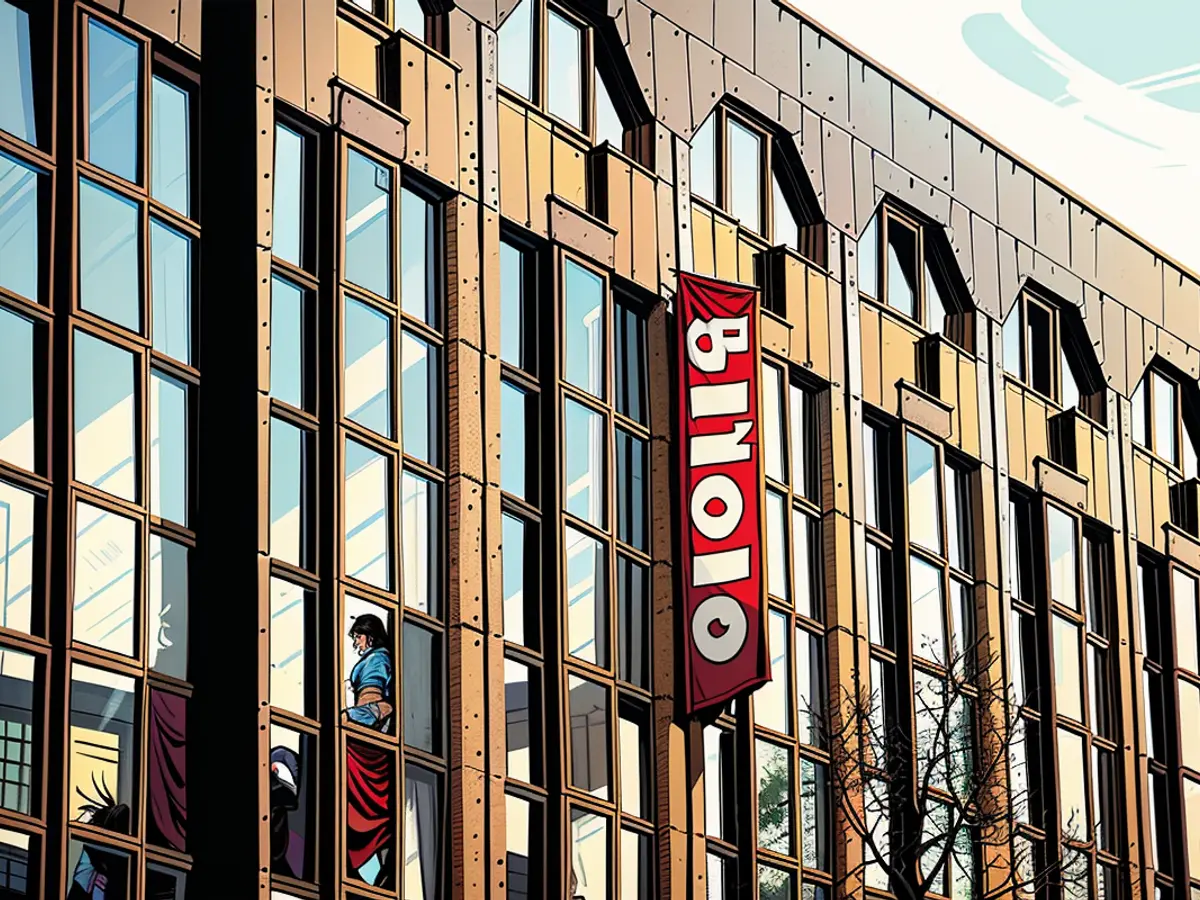Miele proceeds with workforce reduction in Germany.
As the Corona pandemic comes to an end, the demand for kitchen and household appliances is slowly decreasing. This is also the case for German company Miele, which is seeing a drop in sales in 2023. To address this issue, Miele plans to reduce staff through severance packages and early retirement schemes. Layoffs are intended to be avoided.
The appliance manufacturer Miele plans to eliminate about one in nine positions in Germany. Out of the 11,700 current jobs, around 1,300 will be eliminated, the company in Gütersloh has declared. They also announced the signing of a new collective bargaining agreement with the union Verdi. This agreement will last from the beginning of August 2024 to the end of December 2028, and it includes investments of 500 million euros.
In order to reduce staff, there will be severance packages and early retirement schemes. There will be no layoffs until the end of 2027 "in principle." However, there is a loophole: If the job cuts fall short of expectations, layoffs can still be made. Miele is currently experiencing a challenging time. During the Corona period, the business was booming as people spent more time at home and wanted to improve their living spaces, such as purchasing a new kitchen. After the end of the pandemic, demand dropped, and sales in 2023 fell slightly to almost five billion euros (2022: 5.4 billion euros). Worldwide, there are over 22,700 individuals employed by the company.
The management doesn't view this downturn as a temporary setback, but rather as a "sustainable change in the conditions relevant to us," which must be addressed. The plan for job cuts was already announced in February, and negotiations with labor representatives were then held. At that time, it was mentioned that 2,000 jobs would be cut globally, and now the number for Germany, which is 1,300, has been clarified.
The majority of the job cuts will affect the headquarters in Gütersloh, where Miele is located and has a production site. Up to 700 positions in washing machine manufacturing in Gütersloh will be transferred to a Polish plant - they will be dismantled in Germany and assembled in Poland. The remaining 600 jobs will be cut throughout all German locations, in sales, production, and administration.
Verdi evaluated the negotiation outcome after the lengthy tariff negotiations as "light and shadow." It wasn't possible to persuade Miele to abandon their reduction and relocation plans, reported Patrick Loos, the negotiator for IG Metall. The job cuts are "very painful" for the affected employees. "But thanks to the generous severance packages, particularly benefiting the lower wage groups, we have achieved something." Betriebsrat Birgit Bäumker views the investment of 500 million euros as a positive sign for Miele's facilities in Germany.
Personnel responsible at Miele, Rebecca Steinhage, is confident: "We are creating excellent conditions to implement the required changes without layoffs." The agreed-upon policies are an "outstanding example of social partnership during a difficult time." The collective bargaining agreement is not yet finalized - the Verdi members will be deciding in the coming week whether to accept the negotiation outcome.
Read also:
Despite the new collective bargaining agreement signed with Verdi, Miele continues to consider job cuts as a response to the decreasing demand for their products. The German company plans to eliminate approximately 1,300 positions, with the majority affecting their headquarters and production site in Gütersloh.
In the midst of these job cuts discussions, world-renowned opera composer Giuseppe Verdi's works continue to inspire and captivate audiences around the world, ensuring his legacy in the Miele family's homeland of Italy.








